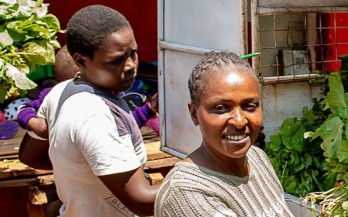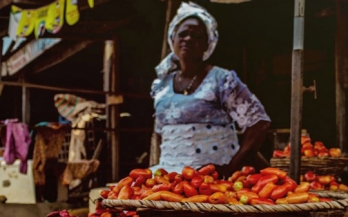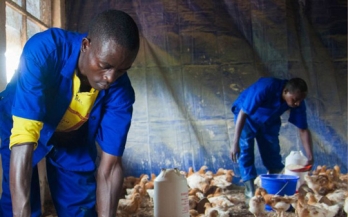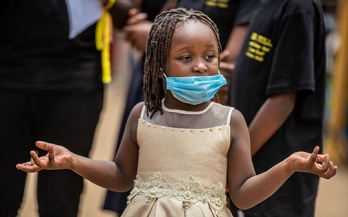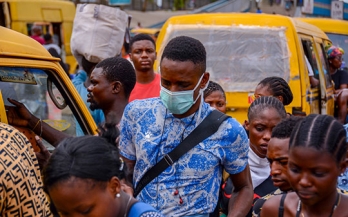- 13/04/2021
This infographic has been prepared by GAIN based on the blog Keeping food flowing within African food systems by busting policy myths penned by GAIN's Executive Director Lawrence Haddad commenting on the paper "Essential non-essentials": COVID-19 policy missteps in Nigeria rooted in persistent myths about African food supply chains.
- 07/04/2021
GAIN and partners, including the Scaling Up Nutrition (SUN) Business Network (co-convened by the World Food Programme (WFP)), undertook a survey of food system SMEs in Kenya in October/November 2020, aiming to assess the impacts of the COVID-19 pandemic and associated control measures on their businesses and their support needs.
- 07/04/2021
GAIN and partners, including the Scaling Up Nutrition (SUN) Business Network (co-convened by the World Food Programme (WFP)), undertook a survey of food system SMEs in Nigeria in October/November 2020, aiming to assess the impacts of the COVID-19 pandemic and associated control measures on their businesses and their support needs.
- 07/04/2021
GAIN and partners, including the Scaling Up Nutrition (SUN) Business Network (co-convened by the World Food Programme (WFP)), undertook a survey of food system SMEs in Nigeria in October/November 2020, aiming to assess the impacts of the COVID-19 pandemic and associated control measures on their businesses and their support needs.
- 07/04/2021
GAIN and partners, including the Scaling Up Nutrition (SUN) Business Network (co-convened by the World Food Programme (WFP)), undertook a survey of food system SMEs in Rwanda in October/November 2020, aiming to assess the impacts of the COVID-19 pandemic and associated control measures on their businesses and their support needs.
- 24/03/2021
The COVID-19 pandemic and its second wave have continued to negatively impact the livelihoods and threaten the food security and nutrition (FSN) of many households in Kenya. In response to mitigate these impacts, the Global Alliance for Improved Nutrition (GAIN) developed the Keeping Food Markets Working (KFMW) programme to provide targeted support to help sustain core food systems, workers and markets during the COVID-19 emergency.
- 24/03/2021
The coronavirus (COVID-19) pandemic is disrupting the world as we know it, with a heavy toll on human lives and economic activities. Its rapid global spread is threatening to affect millions of people already made vulnerable by food insecurity, malnutrition and the effects of conflict and other disasters.
In late February, twenty-four World Food Prize Laureates penned a letter asking the Biden Administration for help. These internationally recognized and exceptional Laureates are known to have advanced the quantity, quality, availability of, or access to food through creative interventions within the food system.
Unsafe food and malnutrition can be twin threats to consumer health and create hurdles to achieving food security for consumers. Yet addressing these twin threats is vital to meet the United Nations’ Sustainable Development Goal 2, a bold call to end hunger and all forms of malnutrition by 2030.

